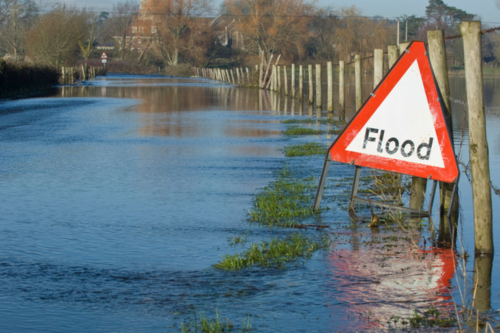The new £6.5m Centre for Doctoral Training (CDT) will be led by the University of Southampton with a talent pool of environmental experts from the University of Bristol, the universities of Loughborough and Newcastle, the National Oceanography Centre, the UK Centre for Ecology and Hydrology, and the British Geological Survey, along with an additional 37 partner organisations.
The FLOOD centre team will be working to protect against rising river, rainfall and sea levels. Currently one in six households in the UK are located in flood-prone areas.
Jeffrey Neal, Professor of Hydrology at the University of Bristol, said: “Recent flooding across the UK from storms Babet, Ciaran and Henk has highlighted the impact of floods on our society. We also know that floods are likely to become more frequent and devastating due to climate change and ongoing development of floodplains.
“Better managing floods and their impacts will be a long-term challenge and we are delighted to launch a new centre to train the next generation of scientists to tacking this problem.”
The FLOOD centre will be led by Ivan Haigh, Professor of Sea Level and Coastal Impact at the University of Southampton.
The biggest drivers of flooding are increased river flow, surface runoff, storm surges and waves, said Professor Haigh, which are compounded by climate change and shifting populations.
Funding for the multimillion-pound centre has been provided by the Natural Environment Research Council (NERC) together with the seven centres and other partners.
Scientists will work to improve their understand of flooding using advanced monitoring and new forms of computer modelling, artificial intelligence and machine learning to map and forecast future flooding risks.
It is supported by 37 organisations in the flood sector across the UK – from local authorities, national government, water, energy and infrastructure companies, environmental, engineering and management consultancies, regulators, finance and (re)insurance companies and charities.
Dr Sean Longfield, a lead scientist from the Environment Agency, said it is a fantastic opportunity to train a new generation of practitioners and researchers in flood and coastal risk management.
He added: "We look forward to working closely with a diverse range of people, skills and academic perspectives over the next seven years to develop world-leading research to improve our understanding of and resilience to future flooding and coastal change."
Tyne Rivers Trust CEO Dr Ceri Gibson said: “Having just returned from the Trent catchment, where thousands of people and businesses are suffering from flooding, I cannot think of a better time to get this exciting initiative up and going.”
